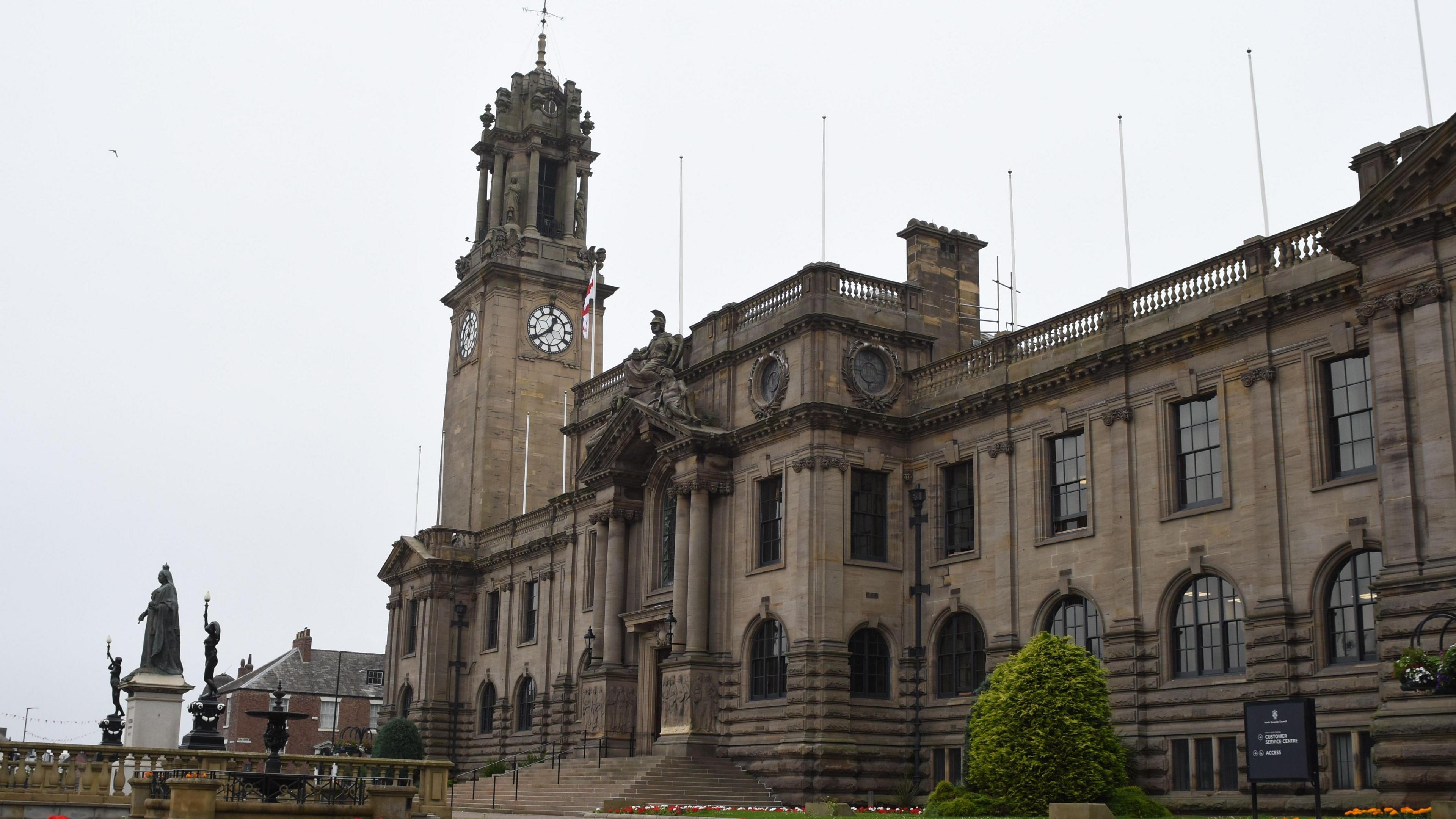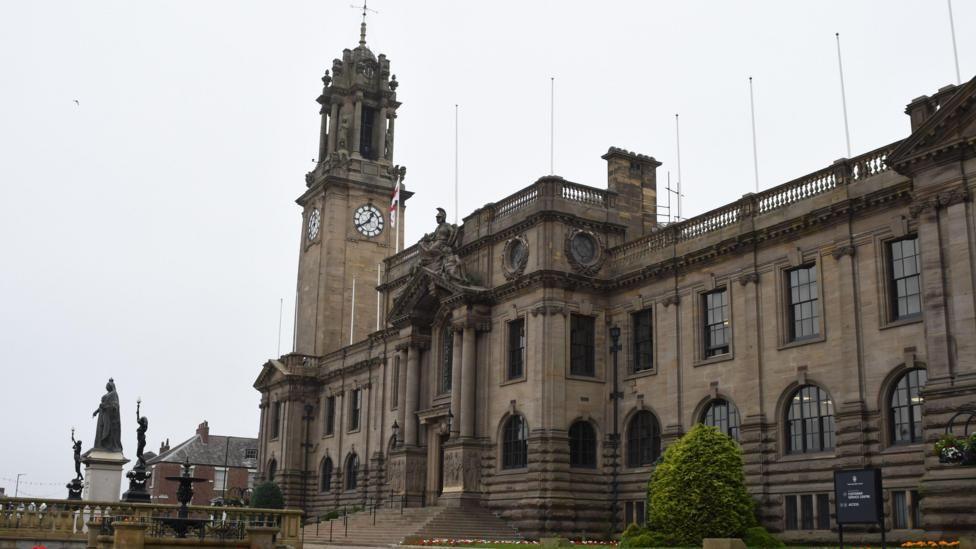Complaints 'weaponised' for political points

Many of South Tyneside Council's code of conduct complaints were lodged by its own members
- Published
A local authority's complaints process has been "weaponised" by councillors to gain publicity or score political points, an internal report has said.
South Tyneside Council received 328 code of conduct complaints over the last five years, with many of them submitted by councillors themselves.
Standards committee chair Prof Grahame Wright said the high number of complaints showed members needed "better training and a renewed commitment to the principles of public life".
The council said the majority of the complaints were rejected as trivial and elected members now received an "enhanced induction and guidance".
Of the 328 complaints received since January 2020, only 3% progressed to a formal hearing.
Analysis also found four councillors received 139 complaints while a quarter were submitted by just four members.
"The pattern of complaints and complainers also demonstrates that the existing system has been weaponised by a handful of councillors," Prof Wright said.
'Badge of honour'
The fact many of the allegations had been submitted by a large group of people using the same wording also suggested the system was being used as a political tool, according to the repot.
"With the benefit of hindsight, it is easy to see the tit-for-tat and political pattern of a significant number of complaints made by a few individuals," Prof Wright said.
But while most councillors preferred not to be the subject of an allegation, others used it to gain publicity.
"There are some who appear to see it as a badge of honour; an indicator that they are 'working for their community'," Prof Wright said.
Many of the complaints related to the language members used to talk to or about members of the public or other colleagues.
The report warned this "rudeness" risked bringing the council into disrepute.
It also said if the number of allegations did not reduce, the cost of dealing with them, which sometimes involved hiring external lawyers, would "increase significantly".
South Tyneside Council said despite the high number of complaints only nine cases had progressed to formal hearings.
It has also brought in "mandatory training" for those serving on its standards committee and said councillors could received external training via the Local Government Association and Local Government Innovation Unit.
While the report criticised the local authority , Prof Wright said the "vast majority" of councillors "served their community diligently, with hard work, and in a manner of which they and the community can be proud".
Follow BBC North East on X, external, Facebook, external, Nextdoor and Instagram, external.
Get in touch
Do you have a story suggestion for BBC Tyne?
Related topics
More stories
- Published13 October

- Published26 August

- Published9 August
